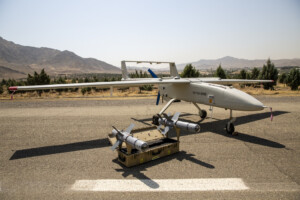Sudan needs comprehensive political reforms: Financial analyst
The chronic economic problems Sudan is facing are the result of an unclear political vision to tackle them, says former banker and civil society activist Hafiz Ismail.
 Former banker and civil society activist Hafiz Ismail (file photo)
Former banker and civil society activist Hafiz Ismail (file photo)
The chronic economic problems Sudan is facing are the result of an unclear political vision to tackle them, says former banker and civil society activist Hafiz Ismail.
The imbalances facing the Sudanese economy are structural, because of the poor economic infrastructure and the inability to absorb any shocks, the financial analyst said in an article earlier this month.
Ismail points to the large budget deficit, the trade payment deficits that led to a sharp devaluation of the national currency, the huge external debts, high inflation and low salaries, high unemployment rates, especially among universities graduates, a shrinking economy which led to a sharp decline in the Gross Domestic Product (GDP), and a sharp rise of the poverty levels.
He laments the measures taken by the government to combat the deep recession Sudan is facing: “While the economy needs stimulating measures so it can start growing, they are using deflationary measures like restricting borrowing from banks and reducing the liquidity – which will deepen the recession even further”.
Austerity measures
End 2017, the Sudanese government decided on a package of austerity measures in an attempt to address the huge gap in its finances. It’s priorities did not change: more than 70 per cent of its spending is still allocated to the defence and security sectors, and less than 10 per cent would be spent on health and education.
The most important component of the new financial package was the increase of custom duties by more than 200 per cent – which affected the prices of most of the goods in early January. The government further decided to liberalise the flour market by allowing companies to import wheat at the exchange rate of the parallel forex market.
At the same time, the indicative exchange rate of the Sudanese Pound against the US Dollar was devalued, from nearly SDG 7 to SGD 18. Yet, the rate in the parallel forex market settled at SDG 30 in January, but began to rise again in February. (The greenback is now selling for SDG 42, RD). The Central Bank of Sudan raised the exchange rate of the US Dollar again on February 5, from SDG 18 to nearly SDG 30.
Due to the combination of tax increases and the devaluation of the Sudanese currency, the prices of locally produced commodities like meat, milk, and vegetables increased as well.
“The country will soon run out of many essential commodities. That is apparent now with the shortage of fuel the country is facing and which will hamper preparations for the coming agricultural seasons.” – Hafiz Ismail
Monetary policies
To address the economic crises facing the country, the government opted for the use of a number of monetary measures instead of addressing the problems “holistically through political reform and macro-economic policies”. Yet, these measures “complicated the situation even further,” Ismail states.
In an attempt to halt the rapid devaluation of the national currency, the government decided to limit cash withdrawals from the banks. “They aimed to target foreign currency dealers as most of their transactions are in cash, but by doing this they stopped other economic activities. 80 per cent of the commercial transactions in the retail and wholesale sectors are completed in cash as most Sudanese do not have a bank account and they do not trust dealing with cheques. The other reason is that Sudan lacks other forms of payment methods such as debit and credit cards [..].”
The analyst warns that as a result of this policy, the number of commercial transactions is declining – which will have an impact on the government revenues in term of tax payments (Value-Added Tax) which in turn will increase the gap in the government’s finances and “force it to resort to deficit financing by printing bank notes that will fuel the already too high inflation”.
Restricting imports
The government decided as well to restrict financing imports to the banking sector. Yet “when banks do not have enough foreign currencies reserves to cover the needs of the importers, this will have a serious impact. The country will soon run out of many essential commodities. That is apparent now with the shortage of fuel the country is facing and which will hamper preparations for the coming agricultural seasons”.
Furthermore, in the 2018 national budget, the government budgeted an incoming amount of $ 5 billion from Sudanese expatriates’ remittances, “but actually 50 per cent of that amount may be received – which will have an impact on their balance of payments”.
Loans
In order to reduce the budget gap, the Sudanese government turned to requesting loans abroad, in particular from Saudi Arabia and the Gulf states in the past years.
Yet, “All their [the government’s] attempts to obtain short-term loans, specially from the Gulf states, have failed,” Ismail states. “It is clear they [the Gulf states] have no intention to bail them out as they used to do in the past, even though Sudan sent troops to fight a proxy war in Yemen”.
Reshuffle
Ismail further ridicules the recent government reshuffle of the National Congress Party (NCP) ministers and state governors.
“This has nothing to do with addressing the economic crisis,” he says. “The reshuffle is just recycling old faces without injecting any new visions or ideas. [..] It revealed the rift within the NCP, and was done mainly to consolidate the power of president Al Bashir in preparation for his re-election in 2020.”
The analyst predicts that the internal differences in the ruling party will continue and “weaken their grip on power”, especially if the current economic crises continue.
“What the country needs is a change of the political system. The centre of powers must be altered, so corruption can be rooted out and replaced by a system of transparency and accountability.”
Combating corruption
Recently, the government took some steps to fight corruption by arresting a number of businessmen – most of them being very close to the ruling party. Yet according to Ismail, the NCP is targeting “certain people” only because of the power struggle within the party.
“What the country needs is a change of the political system,” Ismail says. “The centre of powers must be altered, so corruption can be rooted out and replaced by a system of transparency and accountability.
“Without radical political reform, which dismantle the centres of power they will not be able to root out corruption,” he warns. “Their attempts to fight corruption will not work because they are selective and used to punish political rivals.
“Sudan is now ruled by one person (the president), surrounded by an inner circle. He has the power to override any decision by ministers or the party (NCP). Many senior members within the NCP and the Islamic movement strongly believe that this is hindering any genuine political reform.”
Political reforms
The only way by which Sudan can address its economic crises is by embarking on radical political reforms, Ismail states. This can be done by “a holistic and comprehensive process that ends the wars, addresses the issues of governance, and develops a road map for the transition to democracy by establishing transitional institutions to lead that process”.
First of all, a genuine and comprehensive peace process in required to achieve a sustainable peace in all conflict zones. The ongoing wars consume more that 75 per cent of the total government budget.
“Those extravagant expenses can then be spent on investing in the reform of health services and education, and on improving the infrastructure of the main economic activities which are agriculture and the processing of agricultural products – which will create jobs and boost the economy,” the analyst advises.
Furthermore, a “political reform must include genuine democratic reforms leading to free and fair elections and a state based on citizenship rights, the Rule of Law, recognition of Sudan’s multi-ethnic and multi-cultural identity, freedom of religion”.
The reforms should be based on a “genuine and inclusive political dialogue to set constitutional principles and the terms of an interim period that will lead to free and fair elections”.
According to Ismail, serious political reforms will pave the way for the lifting of the remaining US sanctions against Sudan and to new investment opportunities.
In this way, Khartoum will be able to seriously work on its debt relief and improve its creditworthiness, “so it can borrow from leading international financial institutions to invest in development projects”.
These projects can lead to the creation of jobs for the millions of unemployed Sudanese, he states. It may help as well to reverse the migration of large numbers of Sudanese professionals, “who are forced to leave Sudan due to the economic situation and the policies of the NCP”.











 and then
and then